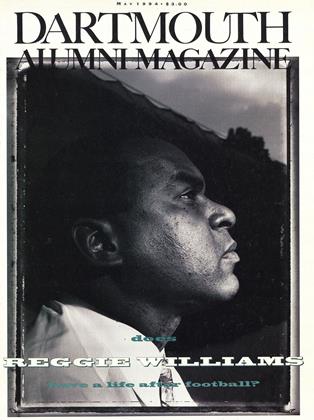How do you win big on "Jeopardy"?
Those buzzers are the key. You can't ring in until Alex Trabek is done with the question. Then it's a horse race.
Some advice for Jeopardy hopefuls: The game is almost impossible to study for. At my contestant tryout there were scads of people walking around with encyclopedias and reference books. None of them made it, because they were too nervous. You have to assume that you already know most of the things they'll ask because you heard it somewhere, sometime. Also, be careful about clues: "Jeopardy" sometimes buries the answer right there in the question, if you're paying attention. Example: In a category I dreaded called "Hints from Heloise," they said, "You needn't lick these postal items; use a light bulb and a dish of water." Well, how many "postal items" are there in the world? Certainly, you're not going to lick a mailbox, and even if you know nothing about "Hints from Heloise," you sure as heck know what a "postal item" is.
Then there is the matter of getting through multiple tapings. Although on TV it appears that winning contestants return on subsequent days, in reality the games are played and recorded one after another. Contestants keep at it until they win five games or lose somewhere along the way. Accordingly, "Jeopardy" asks you to bring three changes of clothing. As for staying alert during multiple tapings, your adrenaline will take care of that. The key is to focus on the question, be fast on the clicker, and try not to pay too much attention to the scores. Things really switch fast, especially in Double Jeopardy, and players who get obsessed with dollar amounts when they should be thinking about the board probably lose.
Thomas Nichols appearedon 'Jeopardy," the SAT oftelevision game shows, inearly February. By the timehe finished his four-show runhe had racked up $45,690and a Dartmouth fan club.
Winner Nichols
 View Full Issue
View Full Issue
More From This Issue
-
 Cover Story
Cover StoryReggie After Football
May 1994 By Brooks Clark '78 -
 Feature
FeatureBaker Tower Nighthawks
May 1994 By Ted Levin -
 Feature
FeatureCOOL STUDIES
May 1994 By KAI SINGER 95 -
 Article
ArticleDr. Wheelock's Journal
May 1994 By "E. Wheelock" -
 Article
ArticleWhy the Novel Matters
May 1994 By Karen Endicott -
 Class Notes
Class Notes1975
May 1994 By W. Blake Winchell
Article
-
 Article
ArticleREV. JOHN W. HAYLEY, SECOND OLDEST GRADUATE DIES
DECEMBER 1927 -
 Article
ArticleDartmouth Aces
February 1945 -
 Article
ArticleHonored for Service to Radio Liberty
JANUARY 1965 -
 Article
ArticleNew Tucker Foundation Dean.
NOVEMBER 1966 -
 Article
ArticlePopular arts
MARCH 1988 -
 Article
ArticleTuck School
October 1960 By GEORGE P. DROWXE JR. '33

